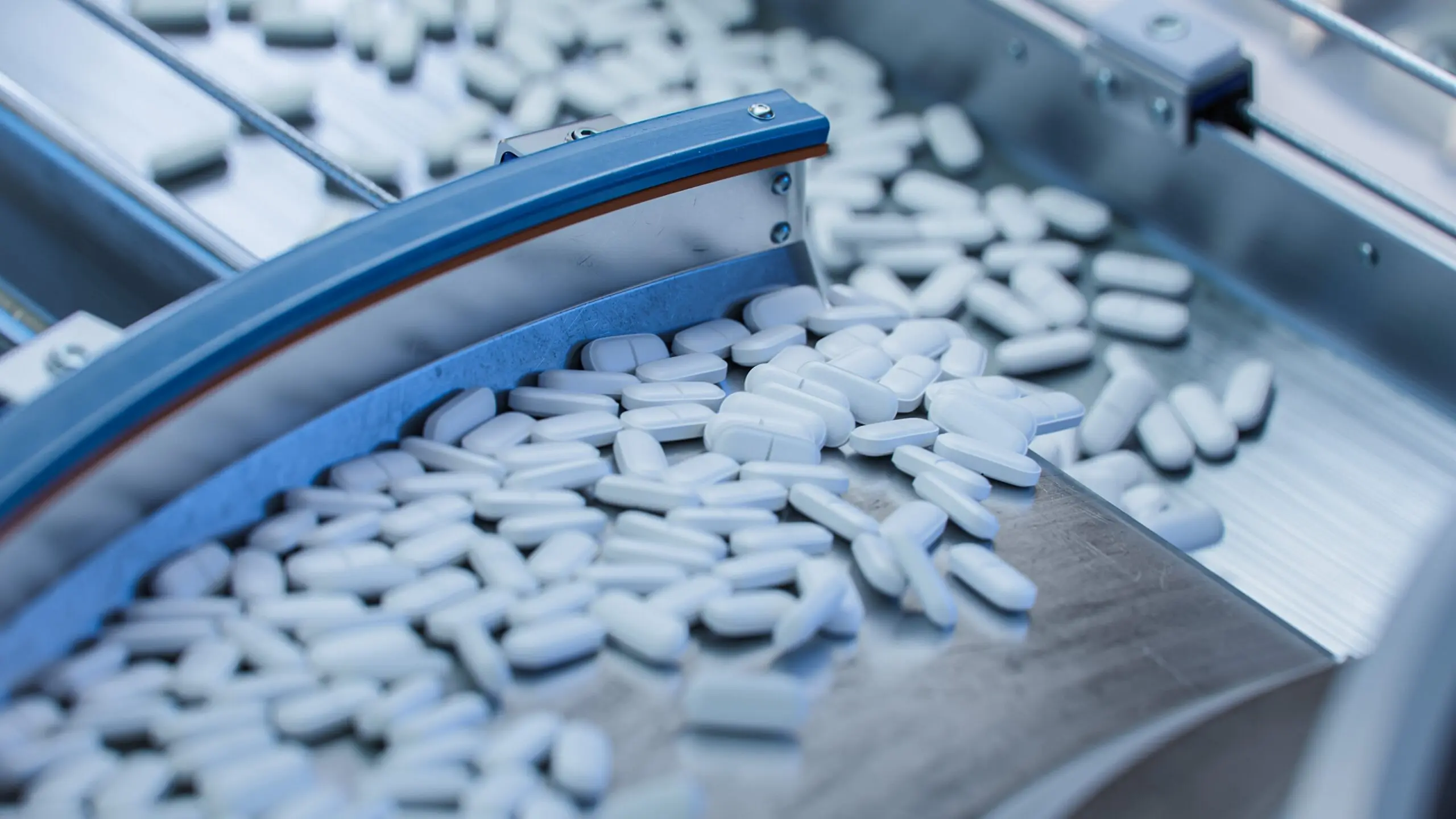
Digestive Issues: A Guide to Gut Health and Medications

Digestive Issues: A Guide to Gut Health and Medications
Learn how digestive medications work, the side effects to watch for, and the simple habits that can keep your gut thriving

Digestive Issues: A Guide to Gut Health and Medications
Share
LIVE WEBINAR: MARCH 3
Curious about trustworthy alternative treatments? Get answers from an expert: what works, what doesn't, and how to afford it.
SAVE YOUR SPOTon this page:
As the engine that turns our food into the fuel we need—and gets rid of what we don’t—our digestive tract is critical to sustaining life. But many of the medications we take to keep it feeling its best come with side effects that may cause more harm than good over time.
According to recent reports, more than 60 percent of Americans say they experience gastrointestinal (GI) distress on a regular basis, and 40 percent of adults say their lives are often disrupted by digestive troubles. The prevalence of GI distress and disease may stem from a reduction in the consumption of dietary fibers in the American diet, as well as sedentary lifestyles, obesity, and an aging adult population. Andy Tau, M.D., a board-certified gastroenterologist with Austin Gastroenterology, adds that the longtail effects of antibiotic use, as well as “an increased incidence of anxiety, depression, and mental health issues after the COVID-19 pandemic,” may be factors as well.
Drugs aimed at gastrointestinal distress mean relief for the millions of people who live with acid reflux, constipation, irritable bowel syndrome (IBS), and more—but all medications carry side effects. Even over-the-counter (OTC) drugs, including antacids to treat mild cases of heartburn, can lead to serious issues, such as increased risk of kidney stones, when used consistently for a long time.
Here’s what you need to know about the benefits and risks of common medications for digestive disorders.
Understanding Common Digestive Disorders
When your digestive tract is healthy, the entire system—from the mouth to the rectum—works smoothly. However, any blockages, overflows, or pain along the way could signal an underlying issue that requires treatment, explains Mujtaba Mohamed, M.D., a gastroenterologist/hepatologist at Marshall Health and assistant professor at Marshall University Joan C. Edwards School of Medicine.
He suggests asking yourself the following questions to evaluate your gut health:
- Are you having trouble swallowing?
- Are you having any trouble with food moving?
- Are there any signs of clogging or overflow (diarrhea or constipation)?
- Are you having any suspicious symptoms like pain, bleeding (either throwing up or through the rectum), jaundice, or weight loss?
These issues can indicate some kind of a digestive disorder. Common digestive disorders include:
- Acid reflux (gastroesophageal reflux disease or GERD) occurs when stomach contents flow back into the esophagus, causing irritation and a burning sensation—the telltale signs of heartburn. If left untreated, reflux can lead to more serious conditions, including Barrett’s esophagus, which creates an increased risk for esophageal cancer.
- Constipation is a condition where bowel movements become infrequent or difficult to pass, often marked by hard, dry stools.
- Irritable Bowel Syndrome (IBS) is a chronic disorder that affects the large intestine, causing abdominal pain, bloating, diarrhea, and/or constipation. The exact cause is unknown, but for many, IBS is triggered by things like stress, certain foods, and hormonal shifts.
- Hiatal hernias occur when part of the stomach pushes through the diaphragm. While some people experience no symptoms, for others, this condition leads to acid reflux, nausea, and chest pain.
- Peptic ulcers are sores that develop along the lining of the stomach or small intestine, causing stomach pain and bloating. They’re often brought on by a bacterial infection (H. pylori) or long-term use of nonsteroidal anti-inflammatory drugs (NSAIDs) such as ibuprofen.
- Hemorrhoids are swollen veins in the anus or lower rectum, which can create pain, itching, and bleeding during bowel movements. Common in pregnancy, hemorrhoids can also be caused by straining or frequent constipation.
- Lactose Intolerance occurs when the body doesn’t have enough of the enzyme lactase needed to digest the sugar in milk and dairy products (lactose). It often leads to bloating, gas, and diarrhea after consuming dairy.
- Crohn’s disease is a long-term condition that causes swelling and irritation in the digestive tract, usually in the small intestine or colon, leading to pain, diarrhea, fatigue, and weight loss.
- Colitis means the colon (large intestine) is inflamed, causing cramping, rectal bleeding, and diarrhea. While a direct cause is often difficult to identify, infections or chronic disorders such as Crohn’s disease or ulcerative colitis are known risk factors.
- Gallstones are solid lumps that form in the gallbladder, usually from cholesterol or bile. Symptoms include pain in the upper belly, especially after eating greasy foods. Gallstones may lead to infections if not treated.
- Colorectal cancer (also called colon cancer or rectal cancer) starts in the colon or rectum, often as small growths (polyps) that can turn cancerous over time. Regular colonoscopies help catch colorectal cancer when it’s easiest to treat.
Common Medications for Digestion Issues: Short-Term Help and Long-Term Effects
Most digestive disorders can be treated or managed—at least to some extent—with medication. GI drugs not only relieve pain and discomfort, but can also be lifesaving, even when the condition being treated appears relatively mild.
“The GI tract plays a key role in overall health,” explains Dr. Tau. “When it functions well, we efficiently absorb nutrients necessary for the everyday activities our body performs. GI illnesses can significantly impact our quality of life, and in many cases, they can shorten life expectancy if not treated properly.”
At the same time, the potential for adverse effects is part and parcel of taking any drug. This can be especially tricky for digestive medications, as some drugs can create dependencies over time as your body comes to rely on their help to keep the plumbing working properly. Plus, digestive medications can result in other digestive symptoms that need to be treated, creating a snowball effect.
Here’s a look at the benefits and risks of some of the most common OTC and prescription medications designed for digestive issues.
Antacids
Available over the counter, antacids that include Tums and Rolaids are one of the highest-selling categories of drugs on the market. They use salts such as aluminum, magnesium, and calcium to neutralize stomach acids and provide temporary relief from heartburn.
Side effects: In the short-term, these acid-reducers can cause constipation or diarrhea, depending on the formulation, says Dr. Tau. They are not ideal for long-term use because they do not heal the systemic issue, opening the door to conditions like Barrett’s esophagus, adds Wahid Wassef, M.D., chief of the U of A College of Medicine, Phoenix’s Division of Gastroenterology and Hepatology, and medical director of Digestive Diseases and Endoscopy at Banner University Medical Center Phoenix. Additionally, those with kidney issues may struggle to excrete these salts efficiently, leading to toxicity. Mounting research also shows that giving antacids to infants can increase the risk of allergies down the road.
Proton Pump Inhibitors (PPIs)
Another option to treat heartburn, proton pump inhibitors—such as Esomeprazole (Nexium), Lansoprazole (Prevacid), and Omeprazole (Prilosec)—can ease the symptoms of GERD and peptic ulcers. Available over-the-counter and by prescription, they work by blocking the enzyme that creates stomach acid, effectively stopping heartburn before it starts.
Side effects: PPIs are largely considered safe in the short term (up to eight weeks), but emerging evidence shows that long-term use may be risky. PPIs can inhibit the absorption of key vitamins and minerals, including vitamin D, and lead to an increased risk of bone fracture, GI cancer, pneumonia, and infection in the intestines. Recent research has also linked PPI use to a risk of dementia. Additionally, it’s critical to taper off PPIs, as opposed to stopping cold turkey, because of “a profound rebound reflux phenomenon,” notes Dr. Tau.
Histamine-2 (H2) Blockers
H2 blockers are sold both by prescription and over-the-counter under the brand names Pepcid, Axid, and Tagamet, and offer an alternative to PPI therapy for GERD and ulcers. They work by binding to H2 receptors, staving off a chain reaction that increases stomach acid.
Side effects: Short-term side effects are minor and uncommon, and can include diarrhea, constipation, and fatigue. However, Dr. Tau notes that when used consistently over time, H2s can gradually lose their effectiveness as your body develops a tolerance to the drug. Another issue: Some OTCs, such as Tagamet, could interfere, long term, with the absorption of medications you take, including blood thinners, antidepressants, and blood pressure medications.
Laxatives
Laxatives help treat mild constipation brought on by lifestyle changes, stress, medications, or digestive disorders like Crohn’s disease. While all laxatives help ease bowel movements, they work through different mechanisms. Over the counter options include bulk-forming fibers; osmotics, which drive water to your colon; stool softeners; lubricants and stimulants. Prescription laxatives provide stronger therapy, according to Dr. Wassef, and include Lactulose (Duphalac), Linaclotide (Linzess), Lubiprostone (Amitiza).
Side effects: Dr. Tau warns that some laxatives, particularly the OTC drug Senna, can weaken natural bowel activity, leading to dependence. “Overuse of any laxative can result in excessive diarrhea leading to dehydration,” he adds. In most cases, laxatives should not be taken long-term as prolonged use can cause nerve damage in the colon, as well as nutrient malabsorption, causing vitamin and mineral deficiencies. Experts warn that laxatives should never be taken as a form of weight control, as this behavior increases the risk of eating disorders.
Dicyclomine
Sold under the brand name Bentyl, dicyclomine is a prescription medication used to treat diarrhea, usually due to irritable bowel syndrome (IBS). It works by blocking receptors that connect with proteins that cause spasms in the GI tract.
Side effects: According to Dr. Mohamed, this medication is relatively safe and “common side effects include dry mouth and constipation.” However, in extremely rare cases, this medication may cause psychological problems, including delusions and substance misuse.
Sucralfate
Sucralfate creates a protective layer to help heal or protect the mucous membranes in the GI tract. It can be prescribed to treat ulcers, inflammation of the esophagus or rectum, or wounds caused by burns or invasive procedures.
Side effects: Because sucralfate acts locally and isn’t significantly absorbed into the bloodstream, side effects are minimal. However, some people experience mild symptoms such as constipation and flatulence. But Sucralfate taken orally contains an aluminum salt, so small amounts of aluminum are absorbed from the GI tract. The most serious risk associated with long-term use is aluminum overload, especially for people with kidney issues or who are taking other drugs that contain aluminum, such as antacids.
Mesalamine
Mesalamine (also known as 5-aminosalicylic acid or 5-ASA) is a prescription medication that works to reduce inflammation in the gut. For many, “It is considered the first step in treating mild inflammatory bowel disease, and ulcerative colitis in particular,” according to Dr. Mohamed.
Side effects: While most people tolerate mesalamine, some may experience mild symptoms of GI upset, nausea, abdominal pain and headaches. In rare cases, some people can have more severe side effects — including allergic reactions, hepatic dysfunction and other heart problems, and pancreatitis. However, such adverse reactions are more closely associated with people living with IBD, especially ulcerative colitis.
Budesonide
A prescription oral steroid that decreases inflammation, Budesonide (Entocort EC) is often used to help calm colitis (inflammation of the colon) for people who live with Crohn’s disease and ulcerative colitis.
Side effects: “The unique feature of this medication is that it is metabolized in the liver before it gets to systemic circulation,” explains Dr. Mohamed. This means the side effects are less pronounced than other steroids. That said, common adverse effects include increased muscle aches and pains, GI distress, chills or fever, fatigue, and loss of appetite. Some people may also experience oral candidiasis (thrush) and bruising or rash, all of which should be immediately discussed with your doctor.
Ursodiol
Also known as ursodeoxycholic acid, ursodiol is in a class of prescription medications called gallstone-dissolution agents and works by decreasing cholesterol synthesis in the body. It’s also used to prevent the formation of gallstones in people who are overweight but losing weight quickly and to treat primary biliary cholangitis, an autoimmune condition where the liver has trouble excreting bile salts.
Side effects: Known side effects include: dizziness, constipation, diarrhea, stomach upset, headache, and hair loss. In rare cases, people who live with cirrhosis have experienced jaundice and worsening of liver disease.
Metoclopramide
Dr. Mohamed describes metoclopramide as an “excellent anti-nausea medication widely used in GI practice.” It works by blocking certain brain signals that make you feel nauseous, and helping food move through the stomach and intestines more quickly. It’s also prescribed for the relief of heartburn and for healing ulcers in the esophagus, particularly for people who have GERD.
Side effects: While effective, this drug carries the risk of some serious adverse effects—especially if used in large doses or for a prolonged duration (longer than 12 weeks). “The most serious side effect is a neurological disorder known as tardive dyskinesia, which manifests as tongue protrusion and chewing movements,” says Dr. Mohamed. Other known effects are increased sweating and confusion, irregular heartbeat, increased blood pressure, even thoughts of suicide, all of which require immediate medical attention. But the most common side effects include dizziness, fatigue or trouble sleeping, weakness, and swelling of ankles, hands, or feet. This drug has also been found to increase the lactation-hormone prolactin in postpartum women, even if they’re not breastfeeding.
How to Prevent GI Issues
When it comes to preventing gastrointestinal issues and disease, our day-to-day lifestyle decisions play a major role. A recent study found that 73 percent of GI issues could be linked to factors such as insufficient water intake, consuming fewer servings of vegetables, lack of adequate exercise, higher-than-recommended body weight, and taking certain medications.
While certain risk factors, including genetics, are out of your control, there are best practices for maintaining a healthy gut:
Eat a Balanced Diet Full of Fiber
Eating enough fiber from whole grains, vegetables, fruits, and beans helps your body digest all the food you eat properly and absorb nutrients more efficiently. High-fiber diets can help treat constipation, IBS, Crohn’s disease, hemorrhoids, and diverticulitis — and even help prevent colon cancer.
Additionally, fiber is sometimes labeled a prebiotic because it helps feed the healthy bacteria in our gut and supports our microbiome. This bacteria not only helps with digestion, it can also reduce the risk of heart disease, diabetes, and cancer.
So how much fiber is enough? The U.S. Department of Agriculture (USDA), which sets the Dietary Guidelines for Americans, recommends adults aim for a minimum of 22–34 grams of fiber (exact recommendation varies by age and sex). For context, one apple has about two grams of fiber, while a serving of black beans has about seven grams.
Prioritize Hydration
Water makes up more than 50% of our body mass, and is critical for digestion, nutrient absorption, and maintaining a healthy microbiome. However, in the United States, up to half of us are chronically underhydrated.
The U.S. Department of Health and Human Services recommends maintaining hydration through water and other low-calorie fluids, including unsweetened tea or coffee and sparkling or flavored waters. Daily hydration needs vary from person to person, depending on your age, weight, and where you live, but the general recommendation is drinking nine cups of liquids per day for women and 13 cups for men. It’s important to recognize signs that you’re getting dehydrated: feeling very thirsty, having headaches, a dry mouth, and darker urine (because your body is trying to conserve water).
Work In Regular Physical Activity
Moderate exercise has big benefits for digestive health. It helps keep food moving through the GI tract, improves circulation (which in turn aids digestion), helps strengthen your digestive muscles, supports your metabolism, and improves microbiome health.
The current Physical Activity Guidelines for Americans advises a total of 150 minutes of moderate-intensity exercise, or 75 minutes of vigorous-intensity exercise, every week, as well as two sessions of strength training. Less than a quarter of adults in the United States currently meet that mark.
Reduce Stress and Anxiety
Stress management is key to improving digestive health, says Dr. Tau. The brain and gut are biologically linked, and research shows that physiological and social stress contribute to gut issues. It’s theorized that stress creates a response in our bodies, slowing down and impairing digestion. Cognitive behavioral therapy, relaxation therapy, meditation, spending time in nature, connecting with friends and family, and practicing positive self-talk may all help lower stress.
Consider Supplements
When it comes to supplements for digestive health, most experts agree that a varied diet rich in fruits and vegetables is a better option than multivitamins or minerals. Still, there are certain supplements that may be beneficial for gut health.
Dr. Wassef says that fiber supplements, taken with water, such as psyllium or Metamucil, can be helpful for people who struggle with regular bowel movements. Dr. Mohamed recommends fish oil supplements, which may support a healthy gut microbiome.
“Probiotics [which have also been linked to gut microbiome health] are often recommended to support gut health,” says Dr. Tau. “However, their efficacy can vary, and it is essential to choose products with well-documented strains and dosages. The right choice is likely bespoke to the patient’s individual gut microbiome population.”
Like medications, supplements can have side effects. Too much fiber can cause gas and bloating, fish oil can cause heartburn or nausea; possibly increase the risk of bleeding; and some clinical trials have even suggested an increased risk of atrial fibrillation when taken at high levels. Additionally, probiotics can cause an uptick in digestive issues for some people.
Before starting any over-the-counter intervention, it’s a good idea to talk to your healthcare professional.
A healthy digestive system is essential for overall well-being—and it begins with positive lifestyle choices. If problems with gut health arise, there are more medications than ever to deliver relief. However, all drugs carry side effects, so it’s important to weigh your medication’s benefits with the potential for negative outcomes. Before self-prescribing over-the-counter options or supplements, consult with a healthcare professional for a proper diagnosis, including a discussion of lifestyle changes and what medications, if any, and supplements could help.
DISCLAIMER: MedShadow provides information and resources related to medications, their effects, and potential side effects. However, it is important to note that we are not a substitute for professional medical advice, diagnosis, or treatment. The content on our site is intended for educational and informational purposes only. Individuals dealing with medical conditions or symptoms should seek guidance from a licensed healthcare professional, such as a physician or pharmacist, who can provide personalized medical advice tailored to their specific circumstances.
While we strive to ensure the accuracy and reliability of the information presented on MedShadow, we cannot guarantee its completeness or suitability for any particular individual’s medical needs. Therefore, we strongly encourage users to consult with qualified healthcare professionals regarding any health-related concerns or decisions. By accessing and using MedShadow, you acknowledge and agree that the information provided on the site is not a substitute for professional medical advice and that you should always consult with a qualified healthcare provider for any medical concerns.
on this page:
RECOMMENDED:
DONATE:
Help fund our fight for improved medication safety and transparency by supporting our independent journalism.
Give NowStay Informed. Sign up for our newsletters.
Independent, science-based journalism delivered directly to your inbox.
We seek to create a world where there are safer medications for all and where all people are fully informed about their medication benefits and side effects, using our explanatory and investigative journalism to both inform and stimulate public discussion to drive toward solutions.
LIVE WEBINAR: MARCH 3
Curious about trustworthy alternative treatments? Get answers from an expert: what works, what doesn't, and how to afford it.
SAVE YOUR SPOT


